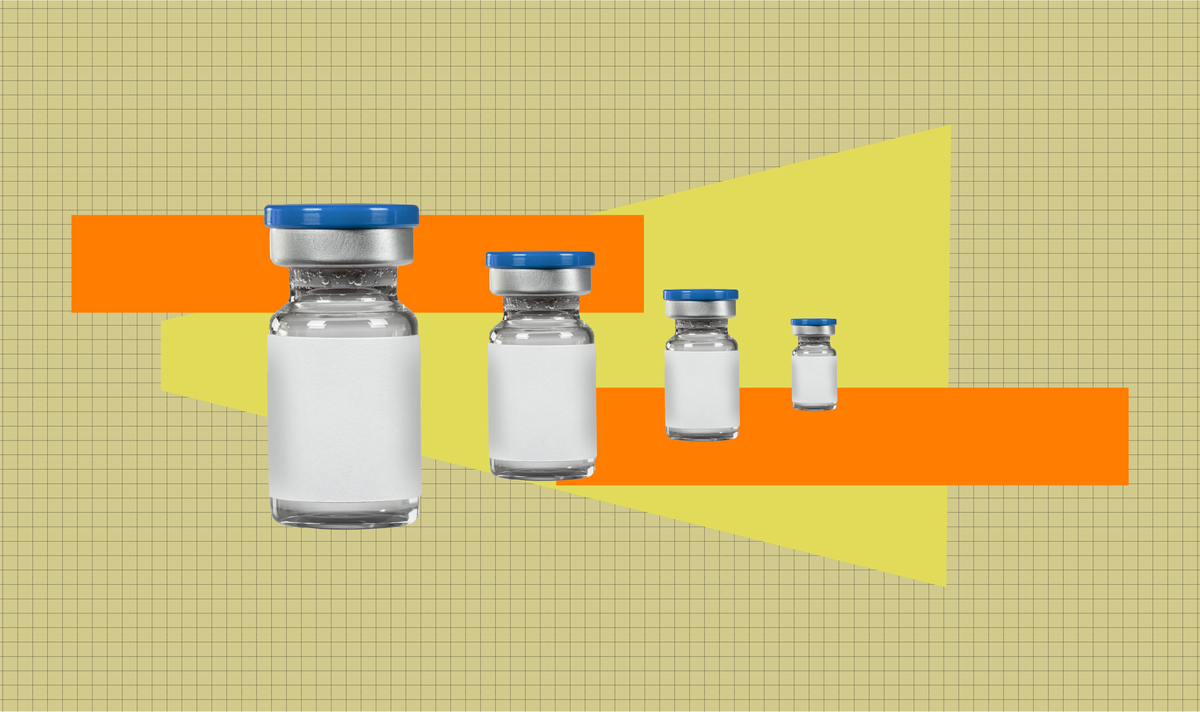Social media users debate CDC approval of new COVID-19 vaccine guidance
Plus, posts discussed vaccination during pregnancy and the importance of childhood vaccines.

Plus, posts discussed vaccination during pregnancy and the importance of childhood vaccines.
This week, the CDC approved its advisors’ recommendations for 2025-2026 COVID-19 vaccines, making the updated shots available to everyone 6 months and older. The new guidance states that people should talk with a health care provider, like a doctor or pharmacist, before getting vaccinated. Some vaccine opponents cheered the change and said the vaccine should never have been recommended. Meanwhile, a trending video and pro-vaccine article reignited public concerns about vaccines for children and pregnant people.

Insights brought to you by the reporters and science writers of Public Good News (PGN), a nonprofit newsroom dedicated to improving community health.
What’s trending in vaccine conversation:
Health care providers and health experts online expressed concern about the impact of federal delays in authorizing COVID-19 vaccine recommendations made in mid-September by CDC advisors. Without CDC approval, the federal Vaccines for Children Program was unable to purchase and distribute free vaccines for low-income communities. The American Academy of Pediatrics warned that the delay left “millions of children” without access to COVID-19 vaccines. Social media users described their struggles to get COVID-19 vaccines for their children, including paying out of pocket and traveling out of state.
The CDC acting director finally approved the recommendations on October 6, more than two weeks after the ACIP vote. Some vaccine opponents celebrated the move and argued that the vaccines should never have been given to children. Several posts debated the effectiveness and safety of the COVID-19 vaccine, while others continued to express concerns about its availability and cost.
An article in an online women’s magazine discussed the importance of COVID-19 vaccination during pregnancy. The article emphasized evidence that vaccinated people are less likely to catch COVID-19 and have a significantly lower risk of pregnancy complications—including preterm birth, birth defects, and stillbirth—compared to unvaccinated people. Responses to the article highlighted vaccine safety and effectiveness during pregnancy, sharing positive stories of their own experiences. Some posts falsely claimed that COVID-19 vaccines are linked to an increased risk of miscarriages and stillbirths, a myth that has been disproven repeatedly. Several posts encouraged people to ignore experts like the American College of Gynecology and Obstetrics and suggested that COVID-19 vaccines are unsafe for anyone. These claims spread as a September Annenberg poll found that most Americans believe COVID-19 vaccination during pregnancy is dangerous.
In a recent trending video, a social media user asked people who chose not to vaccinate their child to share their experiences. The post received over 2,000 comments, most of them expressing anti-vaccine views. Users explained why they chose not to vaccinate, with many claiming that vaccines are unsafe, unvaccinated children are healthier, natural immunity is better, and childhood illnesses are “normal” and not serious. Several posts falsely linked childhood vaccines to health issues like eczema and endometriosis—echoing the reasons shared by unvaccinated adults and their parents in a recent Washington Post article.
Read the fact checks:
- The Washington Post: CDC recommends coronavirus vaccine with a new caveat. Here’s what to know.
- FactCheck.org: Vaccine Advisory Committee Members Mislead About COVID-19 Vaccination During Pregnancy
- Stanford Medicine Children’s Health: What Every Parent Should Know About Immunizations

Recommendations brought to you by the health communication experts behind Infodemiology.com.
Talking points for health care providers to use in response to trending narratives
Each week the Infodemiology.com team will provide talking points and supporting messages in response to some of the trending narratives outlined above. Health care providers can use this messaging when discussing vaccines online, talking to patients, or engaging with communities.
The 2025-2026 COVID-19 vaccines are now available to anyone 6 months and older, after talking to a doctor or pharmacist.
- The CDC approved new recommendations for COVID-19 vaccines that make the vaccines available to all people 6 months and older, including healthy children and pregnant people.
- The new guidelines require people to speak with a health care provider—such as a doctor, nurse, or pharmacist—before getting vaccinated.
- You will not be required to get a prescription or proof that you consulted a health care provider to get vaccinated, but you may be given additional information about vaccine safety.
- All scientific evidence shows that COVID-19 vaccines are safe and the best way to prevent severe illness, long COVID, and death in people of every age and health status.
- Most insurance and all government health programs will cover the cost of the vaccine.
The evidence is clear: COVID-19 vaccination during pregnancy is the best protection for both mother and baby.
- The ACOG, Society for Maternal-Fetal Medicine, and American Academy of Family Physicians continue to recommend COVID-19 vaccination during pregnancy.
- Pregnant people are eligible for the 2025-2026 COVID-19 vaccine. Pregnancy is an underlying health condition that puts you at higher risk of severe illness and death from COVID-19.
- Research shows that getting vaccinated while pregnant reduces your risk of pregnancy complications, including preterm birth and stillbirth.
- Getting vaccinated also protects your newborn when they are too young to be vaccinated. Babies under 6 months are at the highest risk from COVID-19 after older adults.
Childhood vaccines save lives. Delaying or skipping vaccines puts infants and children at risk of deadly diseases.
- Childhood vaccines protect children from serious and life-threatening diseases.
- Children who are denied vaccines are at unnecessary risk and may spread diseases to other vulnerable people, like babies who are too young to be vaccinated.
- Diseases like measles, mumps, and whooping cough aren’t just “normal” childhood illnesses. Before vaccines, millions of children each year suffered severe illness, hospitalization, and lifelong health issues from diseases that are easily preventable thanks to vaccines.
- Decades of research prove that childhood vaccines are safe and life-saving.
Interested in recommendations tailored to public health professionals? Click here.
